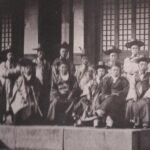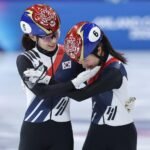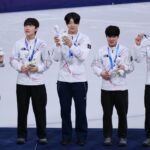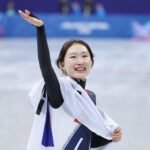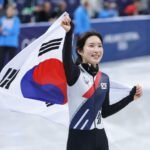A Kookmin Bank’s private banker guides clients into a wealth management office
Young South Korean millionaires want to take more control of their investments and bet on the sectors they have knowledge about, not relying passively on private bankers.
They opt for stocks, equity-linked bonds and other liquid assets in pursuit of short-term gains, rather than making long-term investments in real estate and bonds, private bankers say.
As the self-made rich such as startup founders, cryptocurrency investors and social network influencers are joining the ranks of millionaires, they show little hesitation in adding unlisted foreign stocks to their portfolios.
For alternative investments, they tend to form investment groups or private equity funds on their own to invest in data centers and infrastructure facilities in other countries.
“Young rich prefer the areas in which they have knowledge, even if they yield relatively low returns,” said Park Gye-young, a private banker at KB Securities’ wealth management center in Banpo-dong, Seoul.
“Some young clients skip private bankers and get investment information by communicating directly with analysts,” said a private banker at a wealth management center in southern Seoul.
According to KB Financial Group’s research institute, the number of individuals with more than 10 billion won ($7.2 million) in financial assets stand at 500,000 in South Korea. Those in their 20s and 30s account for slightly less than 10% at 49,000.
For the cohort aged 20 to 49, the number of the wealthy reached 140,000.
Those young millionaires include Kim So-hee, founder of an online make-up and fashion mall Stylenanda that she sold to L’Oreal for 600 billion won and Kim Yeo-jin who sold Gong Cha Korea, a bubble tea franchise, to Unison Capital for 34 billion won.
Kim Byunghoon, founder and chief executive of APR Co., a skincare products maker and Sophie Kim, founder and CEO of gourmet food delivery platform Kurly, joined the young rich group.
A private banker advises clients about real estate investment
According to a survey by Hana Financial Group’s research institute on young rich Koreans in 2022, they balanced real estate and financial assets by six to four. Equity investments made up 25% of their financial assets.
Some 65% of the respondents have invested in overseas stocks and foreign assets, of whom 21% has experiences of investing in cryptocurrencies such as bitcoin.
REAL ESTATE FOR TAX-SAVING
For those inheriting wealth from parents, Korean wealth managers focus on advising them to use real estate in Korea or abroad to cut inheritance and gift taxes.
High-net-worth individuals in their 30s and 40s are inclined to establish a corporation and invest in real estate via the corporate entity for tax saving purposes, said another private banker in Seoul.
They make money from the investment in the form of dividend paid by the corporation.
By Eun-Hyuck Ryu, Ye-Jin Jun and Tae-Ung Bae
ehryu@hankyung.com
Yeonhee Kim edited this article

